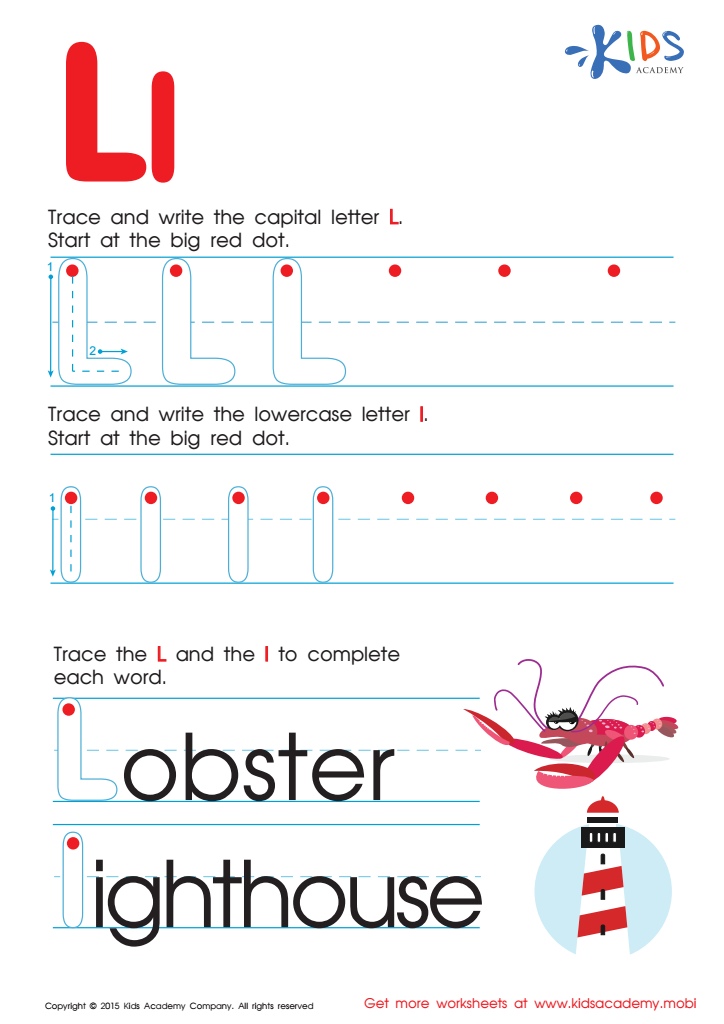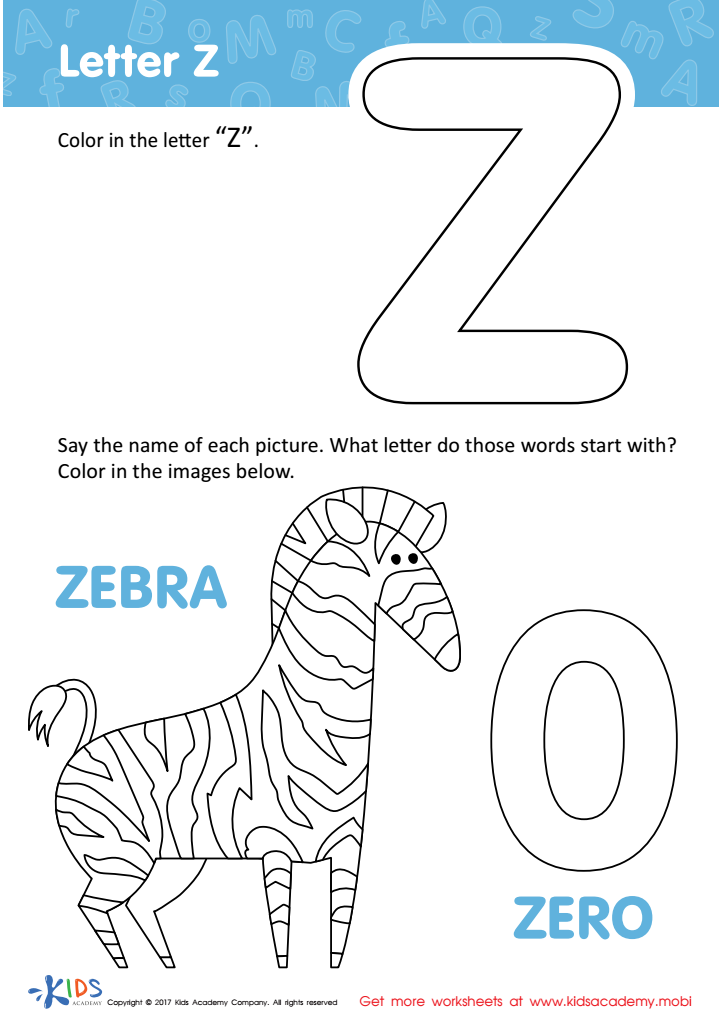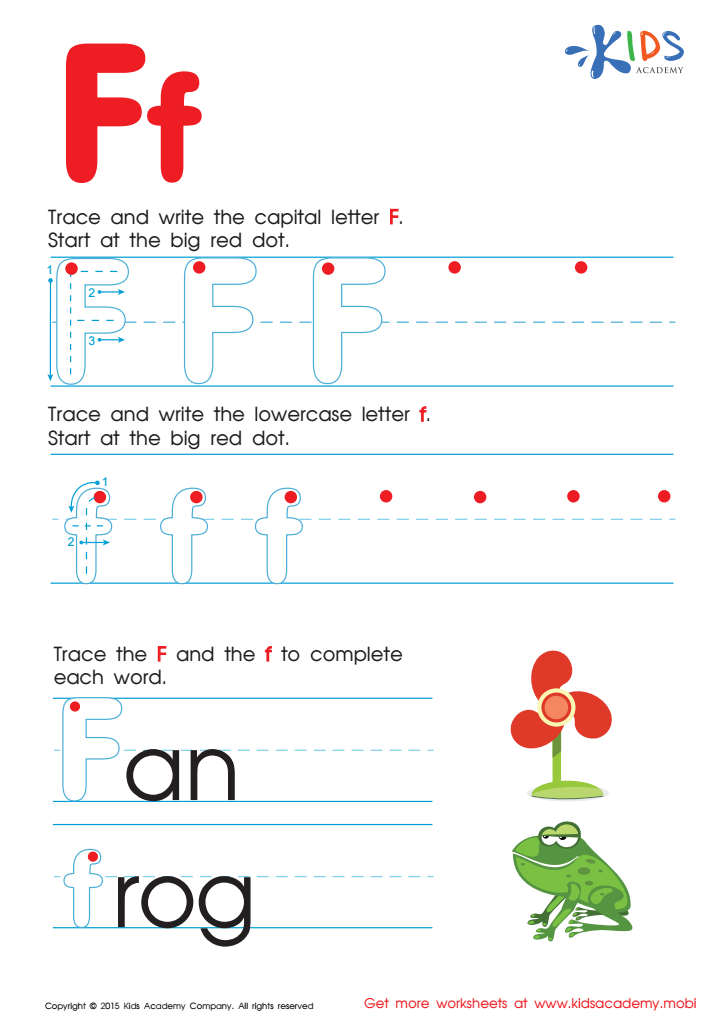Alphabet Learning Alphabet Worksheets for Ages 8-9
3 filtered results
-
From - To
Discover engaging Alphabet Learning Worksheets designed specifically for children aged 8-9! Our worksheets are perfect for reinforcing essential literacy skills in a fun and interactive way. Each worksheet features captivating illustrations and diverse activities that help students strengthen their understanding of letters, sounds, and word formation. Tailored to inspire creativity and critical thinking, these resources provide a balanced approach to learning. Ideal for both classroom and at-home use, they encourage independent exploration of the alphabet. Give your child the confidence they need to excel in reading and writing—explore our collection today and watch their skills soar!


Letter L Tracing Page


Letter Z Coloring Sheet


Letter F Tracing Page
Alphabet learning is crucial for children aged 8-9 as it serves as the foundation for future reading and writing skills. At this age, children are typically transitioning from learning letters to using them in more complex ways. Mastering the alphabet can significantly improve their phonemic awareness, language development, and comprehension skills. Moreover, as students begin to encounter more challenging texts, a strong grasp of the alphabet helps them decode words more effectively, enhancing their overall literacy.
Parents and teachers play vital roles in fostering this learning. By engaging children with interactive alphabet activities—such as phonics games, reading together, and letter writing exercises—they can reinforce these skills in a fun and engaging way. This not only cultivates a love for reading but also boosts confidence in their abilities, which is essential for academic success.
Additionally, an emphasis on alphabet learning can aid in closing any literacy gaps that may exist. When parents and teachers collaborate to prioritize this foundational skill, they contribute significantly to a child’s educational journey and lifelong learning. Thus, supporting alphabet learning is not only about mastering letters but also about nurturing enthusiastic, capable readers ready to thrive in the broader educational landscape.

 Assign to My Students
Assign to My Students
















